
by Dennis Richardson
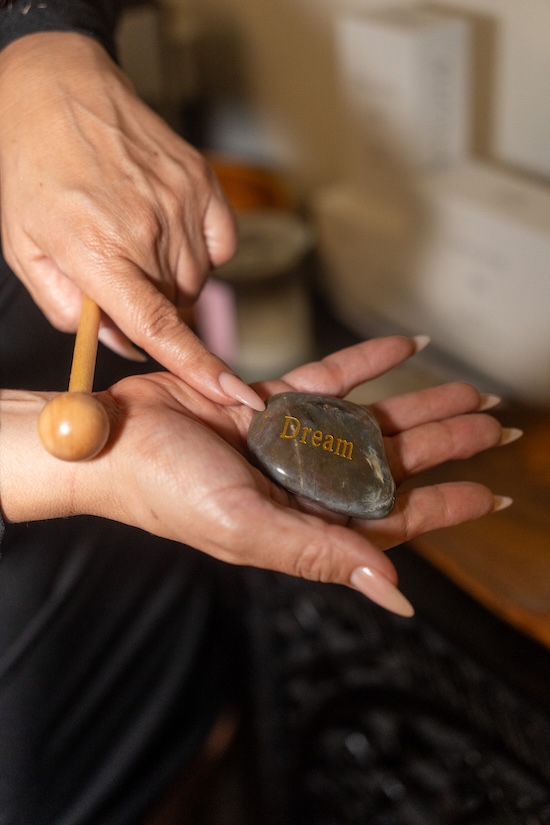
This summer, something sacred is blooming in Culver City.
Alchemy & Dawn, the long-awaited sanctuary by beloved esthetician and healer Dawn Palomino, is more than a beauty space. It’s a homecoming for your spirit, your skin, and your sense of self.
For Dawn, this isn’t just a business, it’s the culmination of years spent holding space for women. Years of early mornings and late nights; years of wiping tears while applying serums; years of creating rituals where others saw routines. It is her soul’s work. Dawn Palomino is a trusted name in beauty and healing, having spent over a decade guiding women back to themselves, one facial, one affirmation, and one breath at a time. She’s not just known for her expert skincare or flawless waxing technique, she’s known for how she makes people feel: seen, safe, soft, and strong.
Her work has always been rooted in intuition, energy, and community. And her clients don’t just walk away glowing on the outside. They leave feeling lighter, clearer, and reconnected.
Built by Community, for Community
Dawn’s journey has been uplifted by the women she’s cared for, those who have cried on her table, who found healing in her words, and who trusted her with their most vulnerable moments. Alchemy & Dawn is built for them; for the mothers, the creatives, the caretakers, the ones who pour into everyone else and deserve a place to receive.
Alchemy & Dawn, is not a spa — it’s a ritual and a sanctuary. It’s about belonging. A Space Where Women Lead with Love. As a proud woman of color and business owner, Dawn is proof that leading with softness is strength. She’s a quiet revolution in a loud world. A reminder that feminine energy is not fragile, it’s fierce, nurturing, and divine. Her leadership creates ripple effects, empowering others to rise, heal, and take up space.
What to Expect at Alchemy & Dawn
To put it all simply, a deluxe pampering for the soul.
- The Mystic Facial, a soul-soothing signature treatment infused with energy work
- Gentle, intentional waxing and brow services
- Crystal healing, sound therapy, and spiritual skincare rituals
- A cozy, high-vibe space curated to feel like a warm hug
- and community events in the heart of Los Angeles.
Every service and every detail is designed to feel like a reset. A pause. And a moment that’s just for you.
Come Be Part of the Magic
Visit alchemyanddawn.com to book your appointment. Follow @alchemyanddawn for healing energy, updates, and reflections.
Be sure to join them this summer for the grand opening celebration, a soulful community event where wellness, sisterhood, and joy come together!
Alchemy & Dawn is located at 11159 Washington Blvd, Culver City, CA 90232.
All photos courtesy of TIP Supply







by Niki Smart
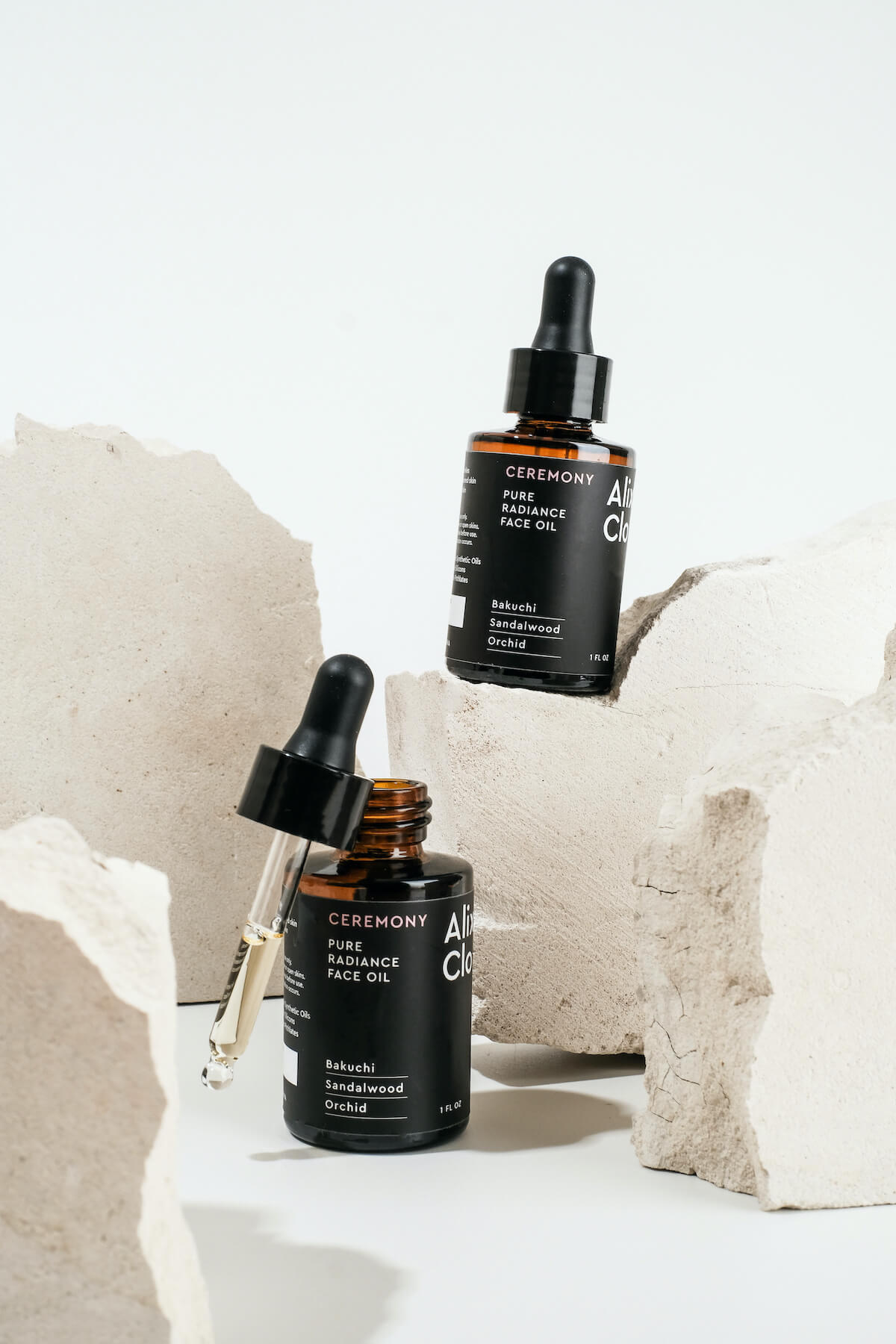 Combining her studies in Ayurveda, Aromatherapy, and Organic Skincare Formulation, Alix Clo brings you an evolving collection of highly therapeutic, age-inclusive, natural skincare products, that not only work, but also feel amazing.
Combining her studies in Ayurveda, Aromatherapy, and Organic Skincare Formulation, Alix Clo brings you an evolving collection of highly therapeutic, age-inclusive, natural skincare products, that not only work, but also feel amazing.
This new skin care line, specially formulated for the 40+ age group, is branded as Radiance at Any Age. As Alix says “I started Alix Clo out of a desire to represent different faces (more than 20 years old) in a beauty industry with an oppressive “anti aging” narrative.”
One of the top sellers in the Alix Clo line is Ceremony. This is an oil based serum that readily absorbs into your skin, contains zero toxins, improves your complexion, repairs your skin barrier, and boosts your collagen. Ceremony is made with a cell-renewing blend of Bakuchiol (a plant-based retinol alternative), Papaya, Orchid, Black Raspberry and Australian Sandalwood..in other words, it is packed with antioxidants and Vitamins C & E.
Designed with menopause in mind, Alix Clo’s Ceremony promises to deliver a dewey glow in 30 seconds.
All of that sounds pretty fantastic, doesn’t it? So when I received my sample in the mail, I was super excited to try it. Who doesn’t want a skincare product that promises cell turnover, skin rejuvenation, and healthy glowing skin? I know I do.
I have to be a little careful with what I put on my face as I tend to have rosacea flare ups. This light-weight oil was not a problem for my sensitive skin at all, plus, it feels simply delicious. Your skin is instantly soft, moisturized, and the promise of dewey skin is real.
After a few weeks, I could absolutely feel the difference in moisture retention and I only used Ceremony once a day– (you can use it twice a day if you like).
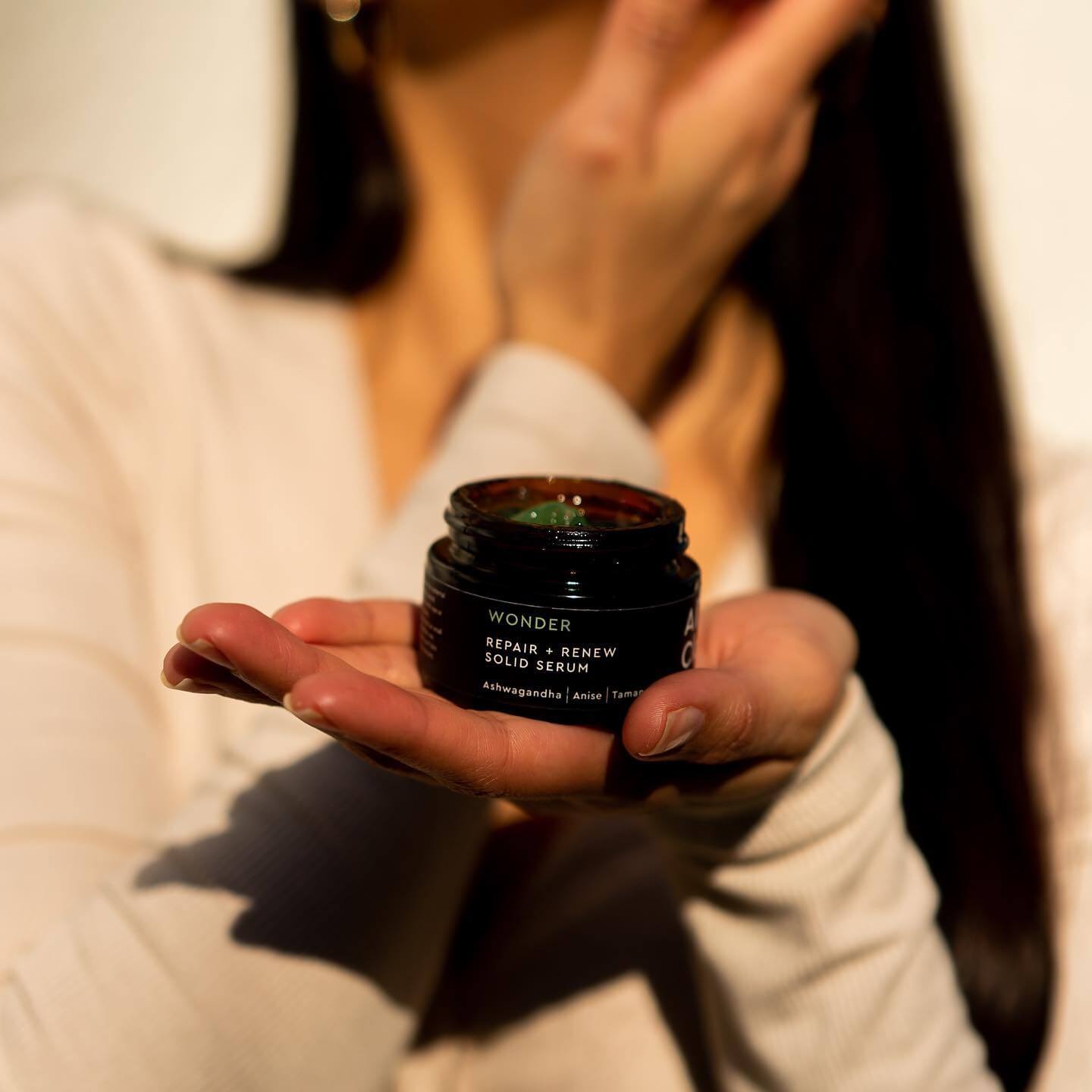 I further received a powerful little jar of Wonder. This serum delivers deep hydration and improves elasticity.
I further received a powerful little jar of Wonder. This serum delivers deep hydration and improves elasticity.
It’s enriched with ashwagandha extract, cold-pressed tamanu seed oil, amla seed oil, and anise. Wonder is a solid serum, gentle cleanser and a repairing face mask all in one. One again, I was thrilled with the results of this skincare product.
In an industry that markets youth as the ultimate version of beauty, it is Alix Clo’s hope to transform our relationship with aging. As Alix likes to say “Age Beautiful“.
Being of a certain age, I support this philosophy. We may not all be young but we do all deserve to be included. My skin has different needs than it did 20 years ago, and I appreciate a company that gives older women a seat at the table.
For more information please visit The Alix Clo Website
Follow Alix Clo on Instagram






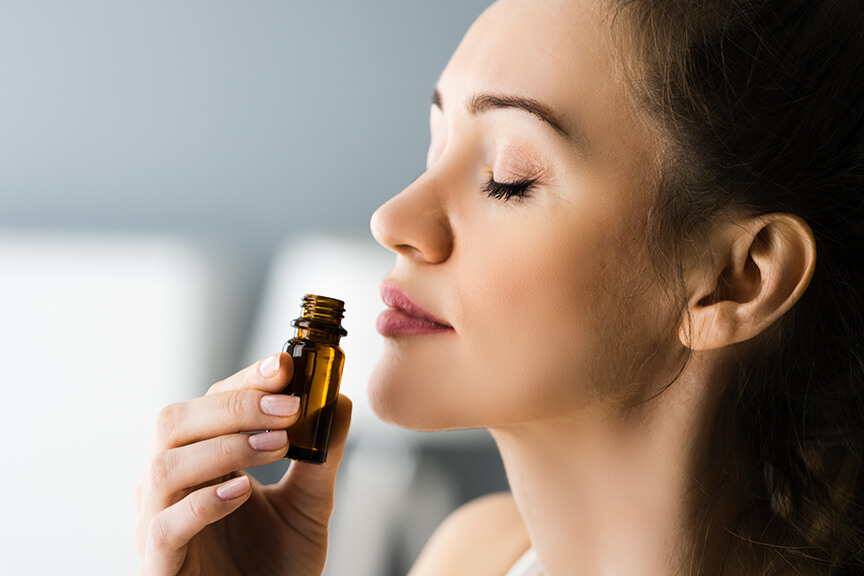
by Liza Linvill
The Power of Scents: How Fragrances Affect Mood and Attraction
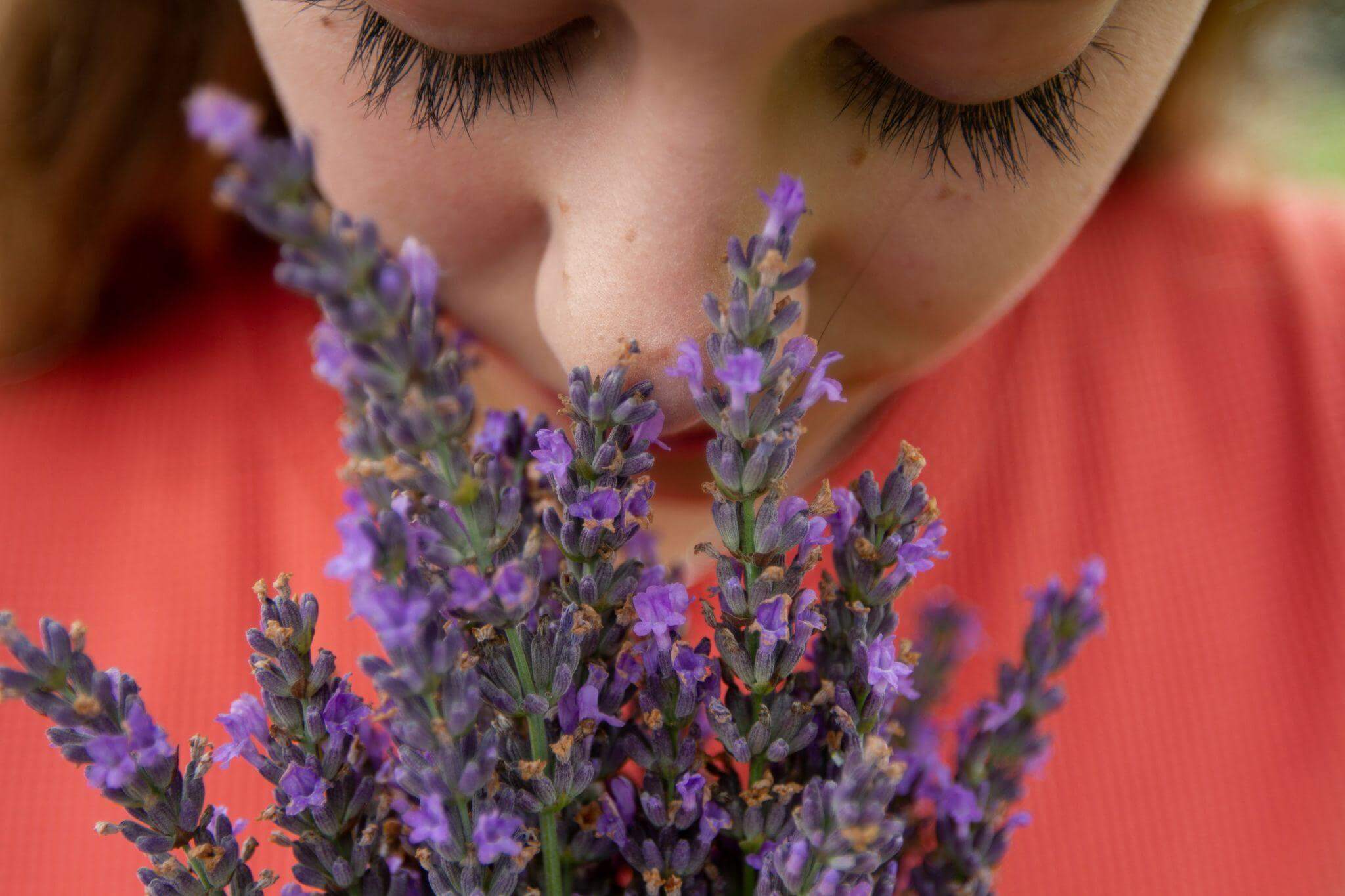
Photo by Elly Johnson on Unsplash
Forget the eyes, the true love potion lies in the nose. More than just a pretty smell, perfume is a chemical symphony that orchestrates our emotions. The sense of smell, which is sometimes undervalued, greatly affects our feelings and perceptions. Perfumes aren’t only about nice smells; perfumes can affect our emotions, evoke memories, and even contribute to attraction. We discover the intriguing links between odors, feelings, and the art of seduction in this investigation into the science of scents.
How Scents Affect Emotion:
- Aromatherapy: Certain smells have physical and mental healing properties. Citrus smells may energize and invigorate, while lavender is well recognized for its relaxing effects.
- Memory Recall: Scents have a special power to bring back memories. Scent and memory are closely linked; the smell of a certain flower might take you back to a special occasion.
- Emotional Reactions: By impacting the limbic system, the area of the brain linked to emotions and memories, scents can elicit emotional reactions in people. Happiness can be evoked by a soothing aroma.
Fragrances in Attraction: Their Function
- Like many other animals, humans too emit pheromones that can affect attractiveness. These chemical cues, however not consciously recognized, influence interpersonal interactions.
- Personal Preferences: Different people have different tastes in scents, so what one person thinks appealing may not appeal to another. One’s natural aroma may be enhanced and a good impression can be made with the correct fragrance.
- Cultural Influences: Our perceptions of scent are also influenced by cultural variables. Scents can be connected to certain cultural or geographic customs, which influences how they are seen in various communities.
Perfume and Individual Identity:

Photo by Alexander Grey on Unsplash
- Trademark Fragrances: A lot of people have a trademark fragrance that comes to represent their individuality. This smell may help with personal branding and leave a lasting impression.
- Occasion-Specific Scents: Scents should be chosen according to the occasion. You may customize your image by wearing a different scent for a formal function than you would for a laid-back get-together.
- Boost Your Confidence: Using a scent that complements your identity will improve your entire appearance and give you a boost of confidence. This will have a beneficial effect in both social and professional settings.
Fragrance Layering: An Art Form
- Body Wash and Lotion: As a basis, start with a body wash or lotion that has an aroma. As a result, the skin develops a light scent layer.
- Apply your preferred perfume or cologne on the wrists, neck, and other important pulse points. These places produce heat, which improves the fragrance’s dispersion.
- Hair spray or Oil: Go for a scented hair spray or oil for a more durable impact. Scents are well retained in hair, guaranteeing a persistent aroma all day.
Monthly Fragrance Subscription
A monthly subscription to the fragrance business may completely change the way you perceive odors. Fragrance monthly subscriptions provide a carefully chosen assortment of fragrances or colognes that are routinely sent to your home. This creative strategy has several advantages:
- Scent Exploration: Monthly memberships let you try out a range of smells without having to buy a full-size bottle. This is especially helpful for broadening your sensory boundaries and learning about new scents.
- Customized Selections: A lot of subscription scent providers tailor their products to your tastes. They can suggest and provide perfumes customized to your preferences based on your smell profile.
- Cost-effective Sampling: Investing a large sum of money in full-sized bottles of premium scents can be worthwhile. A reasonably priced option to try out high-end fragrances before committing to a long-term subscription is through monthly subscriptions.
- Convenience and accessibility: You may discover different smells without having to visit stores when you have a fragrance subscription. The experience is improved overall by the ease of having carefully chosen perfumes delivered right to your home.
Including a monthly subscription to a scent in your routine brings excitement and keeps you aware of changing trends and seasonal styles.
Selecting the Appropriate Fragrance for Various Situations:
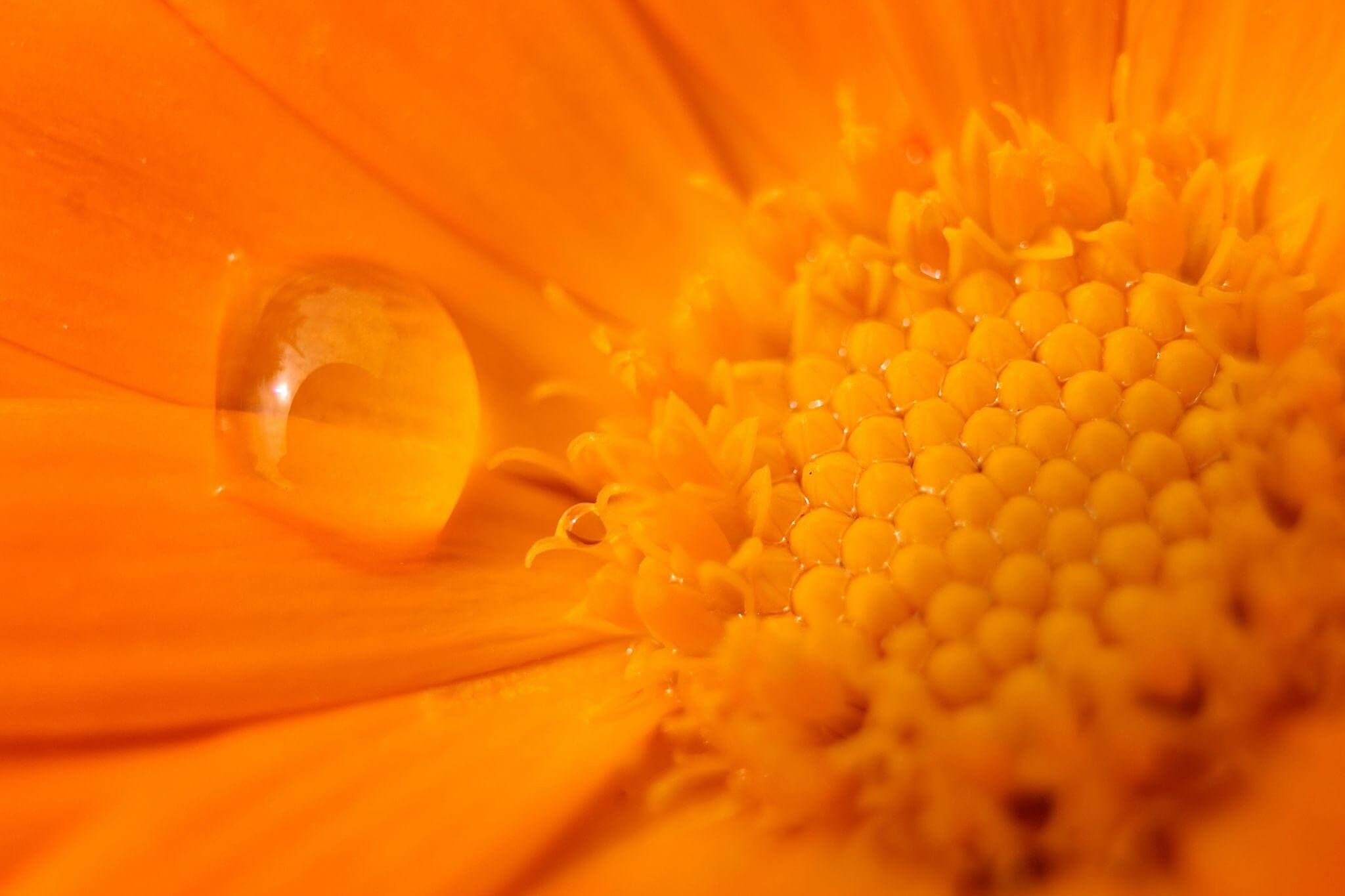
Photo by Sabrina Bronzi on Unsplash
- Daytime Scents: During the day, choose for airy, light fragrances. Notes of citrus, flowers, and greenery are great for creating a fresh, invigorating air.
- Evenings or Formal Events: Richer, more potent scents are appropriate for evenings and formal occasions. Notes of woodsy, spicy, or oriental flavors bring refinement and coziness.
- Casual Outings: Scents that are balanced and adaptable are ideal for casual outings. Fragrances that are gourmand, fruity, or aquatic can be alluring without being overwhelming.
Getting Around on the Fragrant Paths of Life
The complex interactions between odors, feelings, and attraction are made clear by the science of perfumes. Fragrances play an important part in our lives, whether it’s the relaxing embrace of lavender, the enticement of pheromones, or the skill of creating a personal brand through trademark odors. Accept the ability of smells to affect your mood, evoke enduring memories, and improve your general well-being. To start exploring different scents, think about signing up for a monthly subscription service. This method offers new avenues to explore the world of perfumes, from trying out various aromas to having tailored selections delivered right to your home. Let every aroma you encounter along life’s fragrant pathways tell a tale, arouse a feeling, and add color to the rich tapestry of your sensory encounters. After all, each note in the complex waltz of emotions and fragrances is essential to the overall harmony of existence.
Bio: Liza Linvill is a skincare enthusiast, but also deeply passionate about the captivating world of fragrances. She believes that scents can evoke emotions, tell stories, and enhance our daily experiences.






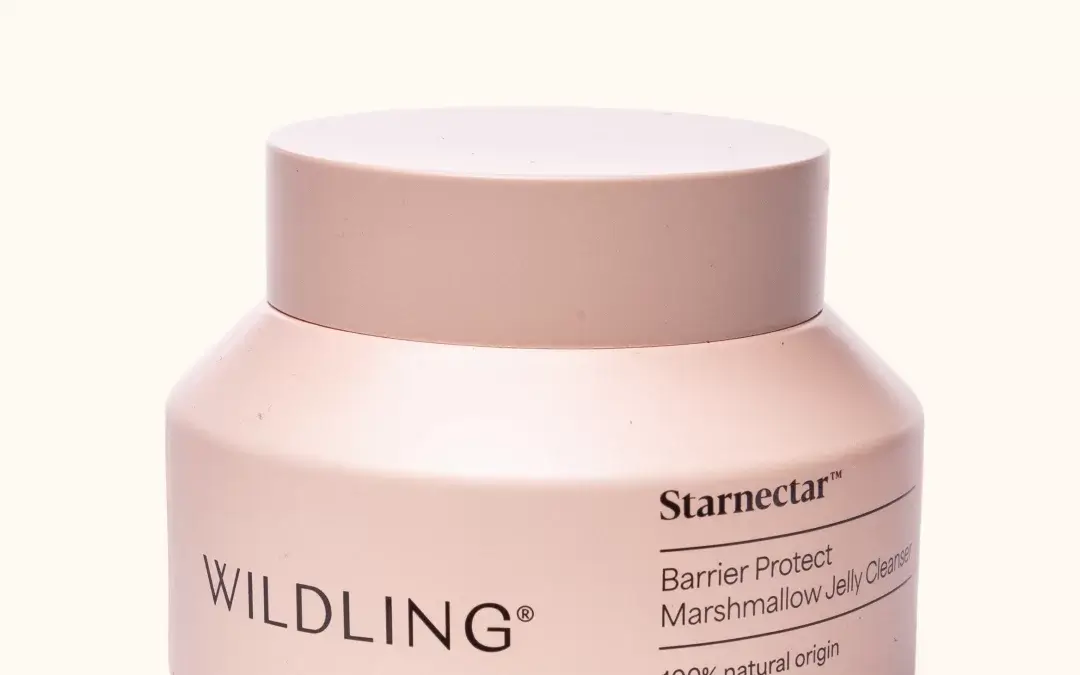
by Dennis Richardson
It’s beginning to feel a lot like summer. With it, many of us will sweat profusely, increasing our need to shower and groom — particularly skincare to cleanse our faces of bacteria and the right products to fight frown lines. Thankfully, there are a few new products to help us from Wildling, an award-winning, holistic beauty brand inspired by herbal and Chinese medicine.
On Tuesday, June 27 Wildling rolled out 3 new products: Starnectar Jelly Cleanser ($45), Moonbounce Plumping Moisturizer ($82), and a Reflexology Spoon ($35). With astrology, herbology and stone medicine as the heartbeat and pillars of the collection, each product includes nontoxic, clinically tested, sustainably sourced, and earth-based ingredients infused with the vibration of calming Moonstone (the oldest medicine of healing).
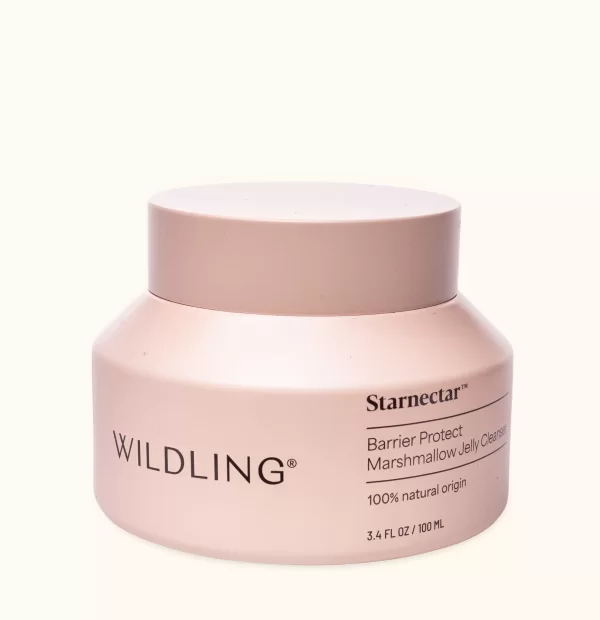
“Easy and Minimal 2-step Process”
We’ve tried the new products out, and can say that they are a summer staple! When you just don’t have time or the guts to face the summer heat for a facial, the Starnectar Jelly Cleanser is a refreshing alternative. Reminiscent of honey, the golden jelly pairs with the Reflexology Spoon to provide cool and instantly moisturizing relief with each application to the pressure points of the face. The best part is that you only need apply the cleanser to dry skin, and remove with a damp cloth. It couldn’t be any easier!
After removal of the cleanser, the Moonbounce Plumping Moisturizer should be applied with the Reflexology Spoon in upward strokes from the neck up. It immediately feels like it’s working to counteract wrinkles, skin damage, bags and sagging. By morning, you’re looking at soft-yet-firm, youthful radiance. — though you can perform this skin-loving ritual in the morning, at night, or twice a day. Essentially a massage for the face, this easy and minimal 2-step process is the next best alternative to a full on facial — saving time and money, with all the feeling of freshness that you love.
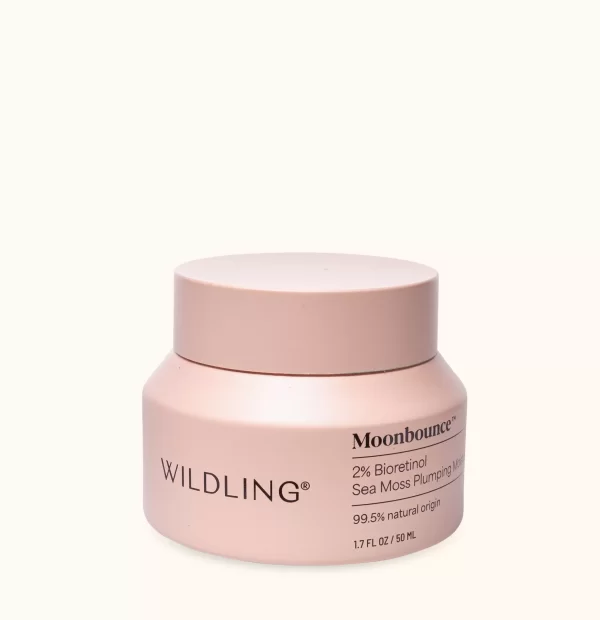
What’s In It?
Firstly, Starnectar Barrier Protect Marshmallow Jelly Cleanser is a cleansing balm that melts makeup and impurities away while maintaining softness and hydration, leaving your skin refreshed, plump, and dewy. The 100% natural blend brightens, softens skin and restores skin’s moisture barrier without stripping its natural oils. Choosing key ingredients that compliment each other to ensure the highest efficacy, the moon-inspired blend includes:
-
Marshmallow Root – Delivers deep hydration while soothing inflammation and repairing skin
-
Licorice Root – Soothes skin to help to ease inflammation, reduce redness, and brighten the complexion
-
Orange Peel – Brightens and cleans while melting even stubborn makeup and SPF without stripping or drying skin
Following, the Moonbounce, 2% Bioretinol Irish Sea Moss Plumping Moisturizer works as a retinol alternative. This proprietary complex includes Bioretinol (Rock Samphire) and Irish Sea Moss to minimize wrinkles and firm the skin–without irritation. Boosted with natural ingredients to hydrate and plump tired skin, this transformative blend includes:
-
Bioretinol (Rock Samphire) – Helps reduce the appearance of fine lines and wrinkles
-
Irish Sea Moss – Nourishes to repair skin elasticity and minimizes the appearance of wrinkles
-
Marshmallow Root – “It’s that good we put it in both products…”
Finally, the Reflexology Spoon is not just “a spoon.” It’s a multi-purpose tool with a functional skincare scoop and reflexology tip to help firm the skin, release tension, and balance energy flow in the body. Simply scoop your skincare products and use the rounded tip to activate pressure points. After all, what’s Wildling without a facial tool to complete the ritual?
It’s the perfect time to evolve your skincare and beauty routine. You can purchase Wildling products at their website.






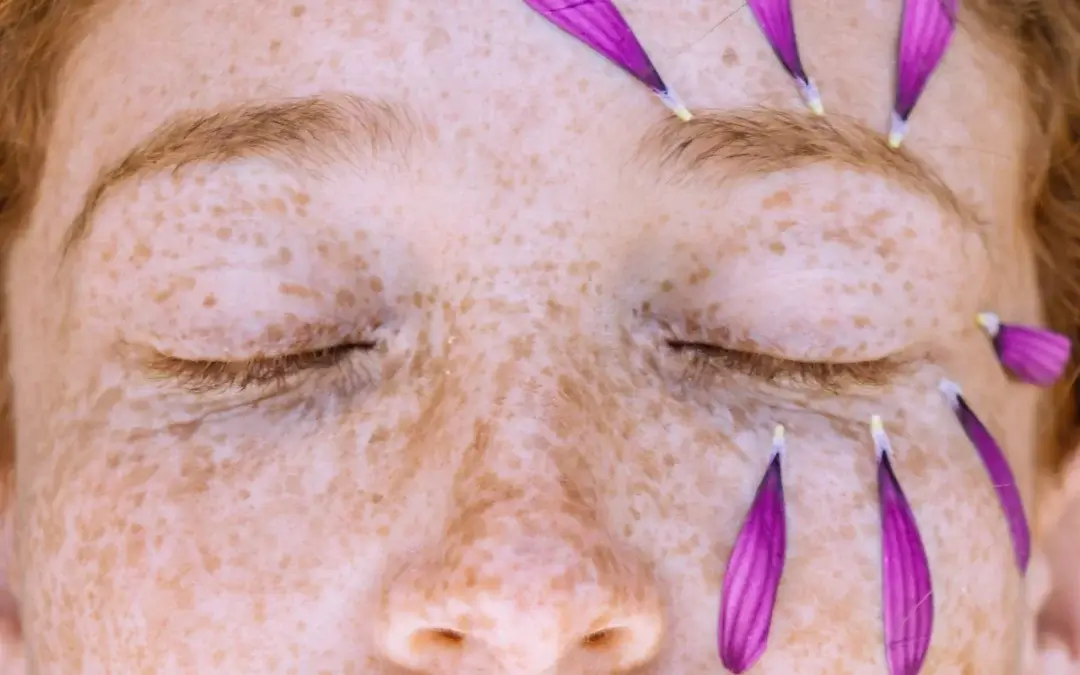
by Mia Barnes
 Fragrances are in almost everything, including your skincare. Even if you opt for unscented items, that doesn’t necessarily mean they’re without scents. Does that mean you need to opt out of nice-smelling products? The answer may vary depending on how sensitive your skin is and how interested you are in finding natural scents over synthetic ones.
Fragrances are in almost everything, including your skincare. Even if you opt for unscented items, that doesn’t necessarily mean they’re without scents. Does that mean you need to opt out of nice-smelling products? The answer may vary depending on how sensitive your skin is and how interested you are in finding natural scents over synthetic ones.
What Does Fragrance Do?
Fragrance makes things smell nice and in some cases, it can neutralize ingredients that smell bad, so you’ll be more likely to use a product. Even some skincare is scented, whether naturally or artificially.
Forty-one percent of women in America use fragrances daily in some form, making it a huge market many people can’t see themselves living without. Some people even have signature scents that make you think of them. Others might opt for unscented products, believing they are the same as fragrance-free items.
There’s a major difference between the two terms you should know before your next purchase:
- Unscented means the product contains ingredients that neutralize the smell of other elements so it has no fragrance.
- Fragrance-free means there are no natural or synthetic fragrance materials in the product.
Why would someone opt for fragrance-free skincare, even over naturally scented products? They might have allergies to scents or have a skin reaction to the fragrances, whether synthetic or natural. Some sensitive skin might not be able to handle essential oils — another product made with natural fragrances.
The Science Behind Fragrance-Related Reactions
Unfortunately, not all fragrances are harmless for every person. Sometimes, even natural fragrances might make a person unwell. Synthetic fragrances are often the cause of contact dermatitis, which results in a painful rash or swollen hives in the area affected by the product. You can avoid future flare-ups by removing fragrances from your life. Try to pinpoint the cause of your contact dermatitis first — it could always be something else, like nickel.
Because many personal care products feature endocrine disruptors that can harm your health, you should learn the ingredients in your personal care products. Look out for potentially harmful components no matter what you use — especially in skincare and hair care products. Endocrine disruptions are known to mess with reproductive health and increase cancer risk.
Since synthetic fragrances could be harmful, you may opt for natural fragrances only. Certain flowers give off a lovely, natural scent you can smell all year long, like roses or lilies. You could even make your own perfume out of flowers from your garden using their petals and some water.
You can use certain essential oil scents to affect your mood, like how citrus can make you happier when you feel down. You have to find the right balance of fragrances that work for you. Before using essential oils, research the scent and whether it can be toxic to any four-legged family members.
Make the Choice That’s Right for You
Some people may rely on fragrance-free skincare, while others might like the scent of their favorite creams and body washes. It’s up to each individual to decide whether fragrance-free skincare is best for them, but you should also try both and see which affects you the least. You might be surprised at what you find out.
Cover Photo by Chermiti Mohamed
Insert Photo by Min An







by Mia Barnes
How to Improve Blood Circulation for Healthy Glowing Skin
 Every organ needs continual blood flow to function. You might not think of your skin as an organ, but it is. If your veins struggle to transport blood, you could experience symptoms like dry skin, a paler countenance, or rashes. Use these tips to improve your blood circulation and enjoy healthy skin that glows.
Every organ needs continual blood flow to function. You might not think of your skin as an organ, but it is. If your veins struggle to transport blood, you could experience symptoms like dry skin, a paler countenance, or rashes. Use these tips to improve your blood circulation and enjoy healthy skin that glows.
1. Exercise More Often
When you need to jog a short distance, you likely experience a flushed face and shortness of breath. The movement forces your heart to pump faster and send more blood through your veins.
Exercising regularly improves blood flow by strengthening the heart muscles that operate every minute of the day. If you do light to moderate cardio exercises, your heart will pump blood more easily when resting. Your body will function more efficiently, including your skin.
2. Give Yourself Massages
The lymphatic system clears toxins from the body by draining waste from your cells. It may not do this as efficiently when you have poor circulation, though. Massaging your skin stimulates the lymphatic system, like recharging a battery.
Give yourself daily massages or visit the spa frequently to engage this natural system that results in glowing skin.
3. Drink More Water
Iced coffee and bubbly sodas taste great, but they don’t do much for your skin’s health. Even though both have water, they aren’t as hydrating as water by itself. Drinking more water hydrates your body, allowing thinner blood to travel through veins more easily than when you drink mostly sodas, coffee, or other beverages.
Consider carrying a water bottle throughout your day so it’s always accessible, and you may notice your skin improving within days.
4. Quit Any Smoking Habits
Smoking introduces chemicals directly into your bloodstream. The toxic mix from cigarettes contains over 7,000 chemicals that pollute your blood after transferring through your lungs. The blood then carries less oxygen to your organs, leading to vessel and heart damage.
You might think vaping is a better option, but recent research proves otherwise. When researchers studied participants who smoked nicotine-free e-cigarettes, they noted a 17.5% blood flow reduction due to the chemicals affecting blood vessel lining.
Instead of smoking to reduce your anxiety, you could eat healthier foods to support your brain health and maintain improved mental wellness. Other stress-relieving habits like exercising, journaling, and meditating could supplement your new routine so you experience healthier skin and inner peace.
5. Get More Omega-3s
Fatty acids, also known as omega-3s, are great for your blood circulation in moderation. They come from foods like salmon, tuna, some seeds, and canola oil. When you ingest it, the fatty acids lower your blood pressure, among other health benefits. Lower blood pressure allows your arteries to open more easily, promoting better circulation.
Talk with your doctor if you believe adding omega-3s to your diet could help your skin. They’ll know how to balance it with your medical history if it’s a sustainable option for your health.
Achieve Healthier, Glowing Skin
Moisturizing and washing your face aren’t the only ways to achieve better skin. You can also improve your blood circulation with these tips. You may find that you have a healthier, more glowing appearance by making these slight adjustments to your daily routine.
Inset photo by Mateus Souza
Cover Photo by Nathan Cowley






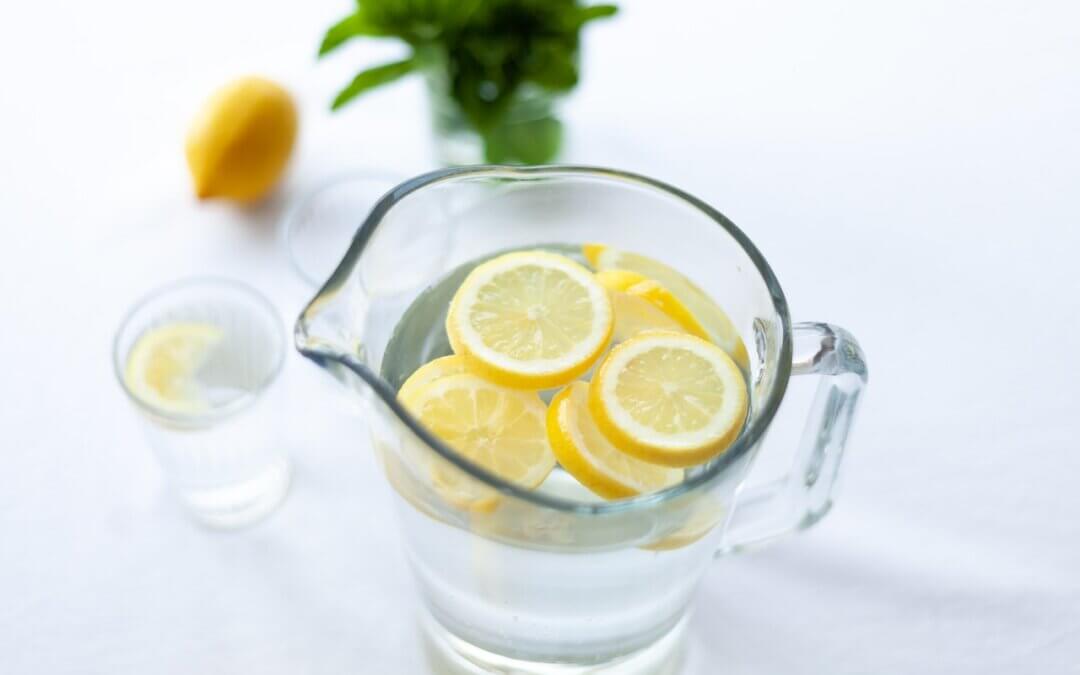
by Mia Barnes
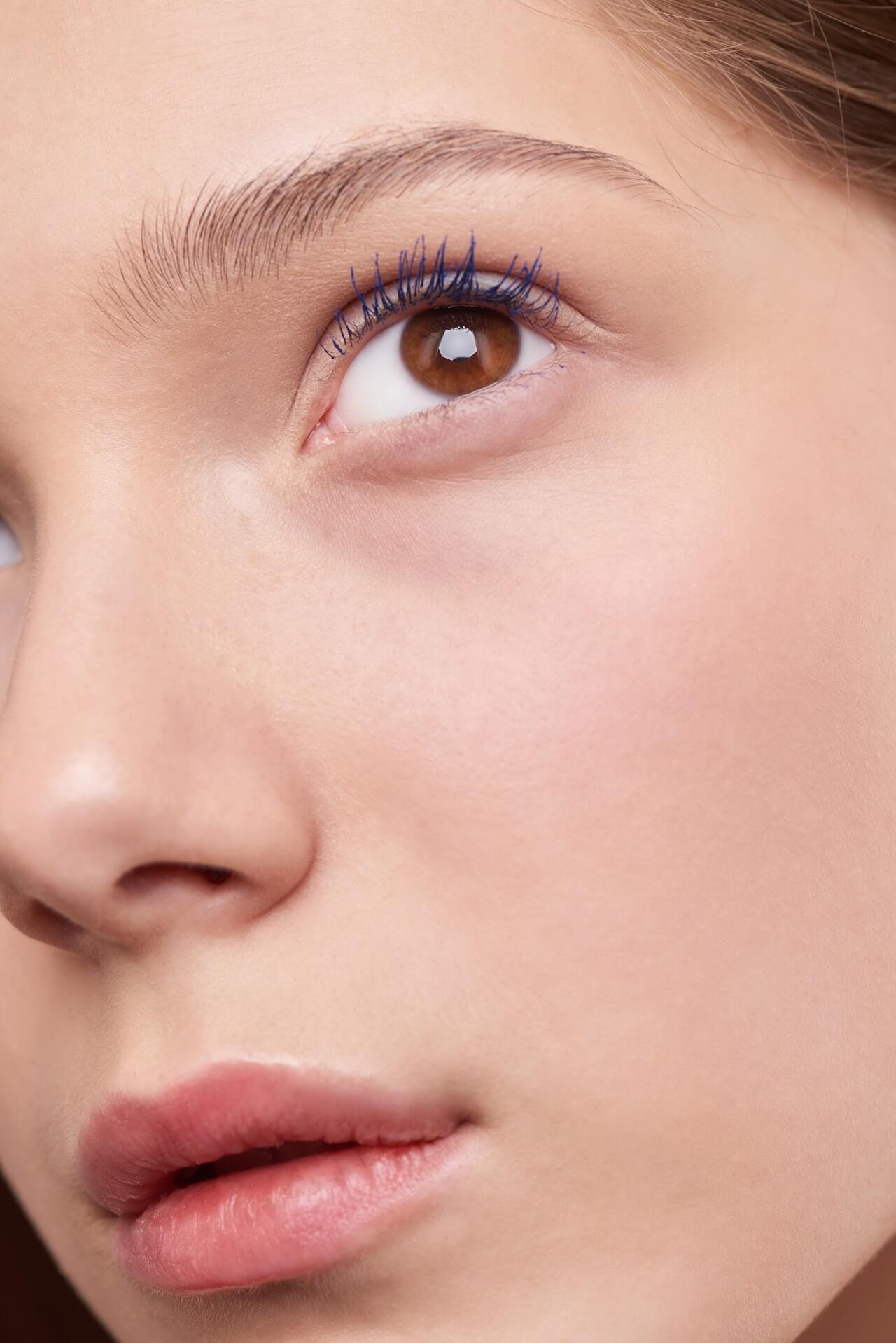 Whether you have a dry skin type frequently or it’s a new development as the seasons change, keeping your skin moisturized can save you a lot of irritation while improving confidence in your appearance. Fortunately, there are dozens of remedies to treat dry skin, and most of them require little change to your normal regimen.
Whether you have a dry skin type frequently or it’s a new development as the seasons change, keeping your skin moisturized can save you a lot of irritation while improving confidence in your appearance. Fortunately, there are dozens of remedies to treat dry skin, and most of them require little change to your normal regimen.
Before you head to your dermatologist or the skin care section of your local drugstore, let’s take a look at some of the best ways to naturally attract and retain moisture in your skin.
1. Drink More Water
Our first tip is the most obvious — keep your moisture levels up by increasing your water intake. Most people don’t drink enough water throughout their day, and your skin may be paying for it. If you want to decrease your risk of dehydration:
- Find a good water bottle: Keeping a water bottle on hand ensures you can sip on it any time you feel thirsty. Find a reusable bottle you love and decorate it so you never want it to leave your side.
- Make your water fun to drink: Don’t like drinking normal water? Any water is better than none. Try drinking more sparkling water or water infused with fruit to add extra flavor.
- Cut your caffeine intake: Caffeine can dehydrate you. If you drink a lot of coffee or other high-caffeine drinks, you may be lowering the moisture levels in your body, even if you drink enough water. Try substituting coffee with herbal and low-caffeine teas.
2. Use Moisturizers and Sunscreen
If you think about your skin’s moisture, you likely already use a moisturizer regularly. But what about sunscreen? When applied after moisturizer, sunscreen creates a barrier that retains water inside and prevents UV rays from damaging skin and further affecting your natural moisture barrier.
Follow these moisturizer and sunscreen tips:
- Apply directly after bathing: Swimming, showering, washing your hands and other water-based activities deliver moisture right to your skin. Make sure it stays there by applying your skin care products as soon as possible after you’re finished.
- Reapply often: Sunscreen in particular has a limited life span. If you’re going to be outside for a while, reapply it every two hours or more often if you’re swimming.
- Look for humectants, sealants and emollients: When deciding which sunscreen and moisturizers to use, look for ones with humectants, which attract moisture, sealants to keep moisture close to the skin, and emollients that fill the space between skin cells to prevent water from escaping.
3. Eat More Seafood
Lobster, sardines, oysters and other delicious tastes of the sea — a decadent, tropical meal can be more than a good time for your mouth. Seafood is high in omega-3 fatty acids, which can give your skin that radiant glow you love while protecting it from free radicals, like UV rays and smog. It’s also a good source of fish oil, which can prevent or ease acne breakouts.
Certain types of seafood are high in other minerals, too. Salmon is packed with vitamin A, while tuna can boost your vitamin D levels. These nutrients improve wellness from the inside out, enhancing bodily functions for all organs, skin included.
4. Avoid Dry Air and Irritants
Sometimes, the reason your skin is dry may have more to do with your environment than your skin type. If your moisturizing measures aren’t working as well as you’d hoped, it may be time to consider external factors.
First, equip your home and workspace with a humidifier. Humidifiers give your skin a constant boost of quality air to fortify its barriers. Then, explore whether you may be unknowingly exposing yourself to other irritants.
Irritants can range from uncomfortable textures to personal allergens. Common irritants include fragrance products, wool and textured fabrics, soaps, detergents and plants.
Start Experimenting Today
As you can see, there are several methods for moisturizing your skin and bettering that natural glow. Try them one by one to discover which works best, or incorporate them all into your daily routine to experience better wellness overall.
Cover Photo by Shiny Diamond:
Insert Photo by Julia Zolotova:







by Mia Barnes
4 Tips to Protect Your Skin in the Spring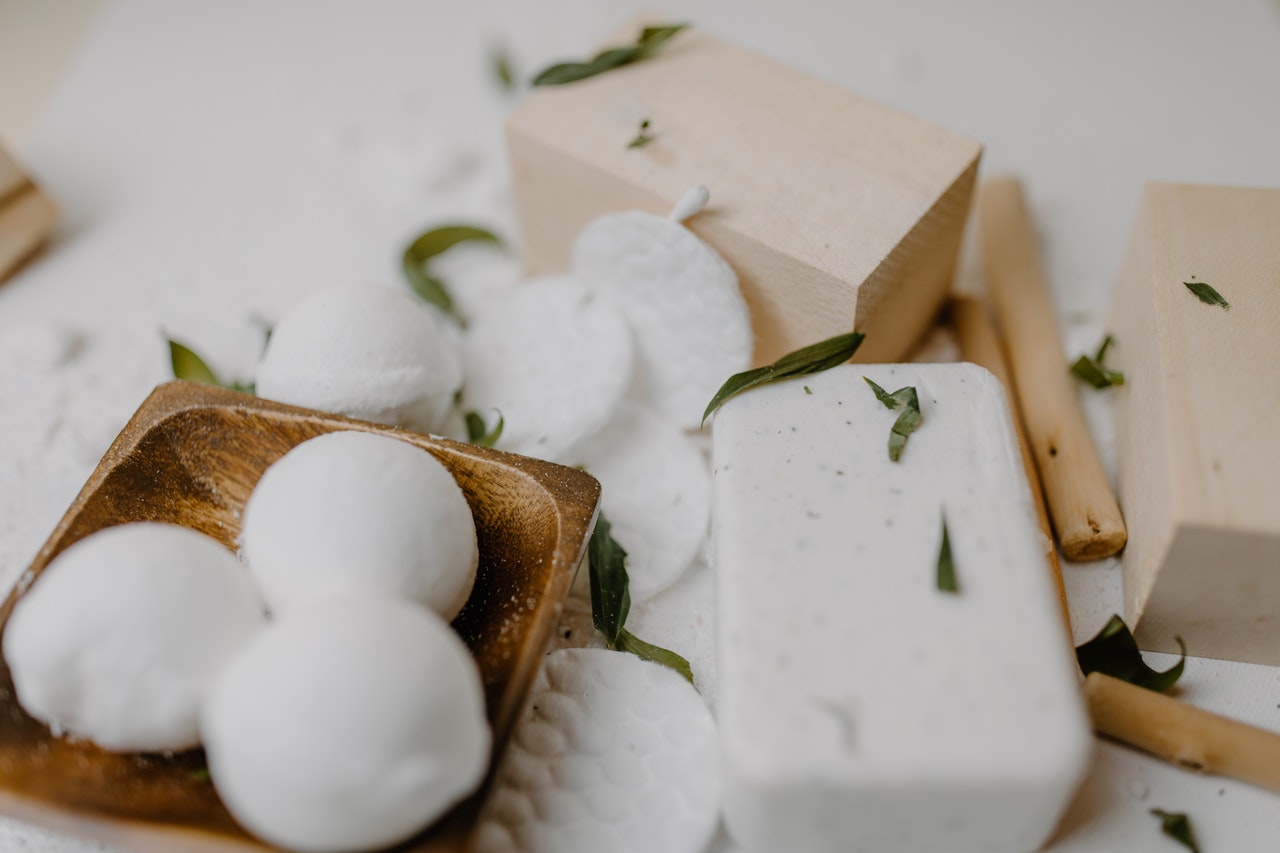
Did you know that your skin care routine should change with the seasons? As harsh winter weather subsides and spring approaches, sunlight, warmer temperatures and humidity will dramatically affect your skin. Here’s how to protect it so you’re ready to welcome brighter days, whatever they may bring.
1. Look for Lighter Formulas
Frosty winds and freezing temperatures can do a number on your skin, especially your hands and face. Whether you spend most of your time indoors or often brave the biting cold, dryness, flaking, itching, cracking and scaly skin can happen to anyone.
That’s why so many people use heavy creams and moisturizers during the winter. Your skin is typically oilier in the spring, which means you can get away with using lighter formulas. You might even use ones that purposely dry out your skin to fight acne, improve skin tone and minimize fine lines.
2. Use Exfoliating Scrubs
Dry indoor heat and heavy moisturizers can leave skin patchy and dull. When brighter days are in the forecast, it’s time to revitalize and restore its warm glow. Slough off dead skin with an exfoliating scrub. Avoid plastic microbeads and opt for natural ones with granulated pumice, Epsom salt and even coffee grounds.
You can even make your own with ingredients you have at home. Use your hands to apply scrubs to your face and a loofah to exfoliate the rest of your body. Gently massage your skin to improve circulation and bring some color to your cheeks.
3. Add a Layer of SPF
Exposure to the sun’s ultraviolet rays is responsible for 86%-90% of skin cancers. That’s why it’s so important to protect your skin, even in the springtime. Save yourself the trouble of burns, blisters and sun spots by layering on broad-spectrum sunscreen before heading out the door.
Apply products with an SPF of 15 to 30 for the face and 30 to 50 for the rest of your body. Pick moisturizing ones that block UV rays while nourishing your skin.
4. Cover up Outdoors
Are you sensitive to chemical sunscreens? What you need is a wardrobe update. Add jackets, shawls and wide-brimmed hats to your repertoire and protect your skin from harmful UV rays.
Many outdoor companies also carry clothing that promotes an ultraviolet protection factor. These stylish yet effective garments block ultraviolet-A and ultraviolet-B rays, just like broad-spectrum sunscreens. Stock up on these wardrobe staples before spring arrives to keep your skin safe.
Knowing Your Skin Type
Your skin care regimen might differ from your friends’. In fact, it probably should. Everyone has a different skin type that reacts to each season in its own way. Whether yours is dry, oily or somewhere in between, there’s a product and regimen that’s right for you.
It might take some trial and error, but once you understand the skin you’re in, purchasing products that are tailored to your skin type and goals should be a breeze. Stick with what works and keep an eye on the weather. You never know when you might have to switch things up again.
Cover Photo by Olya Kobruseva from Pexels
Inside Photo by Tara Winstead from Pexels






by Mia Barnes
There are so many ways that you can improve your skin and your skin care, from the inside out. Whether you have a great routine in place already or you’re simply curious about what other aspects of your lifestyle can benefit your beauty routine, you might be surprised to learn that probiotics can be fantastic for the skin. Even though probiotics are available in topical form, you can find plenty of fantastic probiotics to take orally that can benefit your entire body, in addition to your skin.
Here are some of the benefits that you might find when you take probiotics.
Improving Your Moisture Barrier
Your moisture barrier is one of the most important things when it comes to protecting your skin from damage, debris, and everything outside of your skin’s ecosystem. Not only does the moisture barrier offer protection, but it also helps to keep the skin hydrated by preventing transepidermal water loss.
By taking probiotics or even applying certain probiotic serums and extracts topically, you can strengthen the moisture barrier for better protection.
Balancing the Good Bacteria
Just like any other part of your body, your skin has the ability to balance good and bad bacteria in order to create the best environment for your face. Probiotics introduce bacteria into your system, but instead of harmful bacteria, it’s good bacteria. This can offer protection and improve your skin’s appearance and even the health of your skin.
Improving Eczema
By offering a bit of extra protection and balance, probiotics have shown the ability to reduce the severity of allergies and eczema. Although it’s obviously different for everybody, you can try taking or applying different forms of probiotics to see which ones work for you in conjunction with your usual allergy and eczema treatments.
Clearing Acne
As a result of offering a bit of extra protection and by balancing some of the good and bad bacteria, probiotics have the power to reduce skin sensitivity and irritation. Specifically, those who have especially dry or oily skin can benefit a lot from taking probiotics, as they can help to bring a little bit more balance to the moisture, which helps clear acne, discoloration, and other skin concerns.
Soothing
Although this one can go hand-in-hand with acne, it can also be true for many other skin concerns. If you tend to experience a lot of irritation and sensitivity, taking probiotics can be extremely soothing to the skin. Probiotics can help to reduce inflammation, acne, and even rosacea, all of which tend to come in cycles or as a part of a pattern.
Improving Gut Health
At the root of all of this, one of the most important things to consider is the benefit that probiotics bring to your gut health, and therefore your skin. Even though your gut health might seem unrelated to your appearance, there is actually a very strong connection between your gut health and the health of the rest of your body, which includes your skin. When you improve your gut health, you make the space for the rest of your body to balance in accordance with it.
Probiotics and the Skin
There are plenty of reasons to take probiotics, and improving the health of your skin is just one of them. By taking probiotics, you can improve your gut health, reduce inflammation, and introduce plenty of other benefits into the body’s systems, which happen to all be connected. From protecting the moisture barrier to clearing up acne and eczema, there are so many reasons why you might want to look into taking a probiotic for the health of your skin. Do you already take a probiotic, or are you simply looking into it?
Photo by Cats Coming from Pexels
Cover Photo by Shiny Diamond from Pexels






by Randy Dunbar

Getting hydrated and plump skin can be hard to achieve, especially if you live in a place with a hot and dry climate. Dr. Caren Campbell, a dermatologist in California, stated that residents living in places with hot and dry climates are more likely to suffer from dry and dehydrated skin. Due to the lack of water in the air, the natural moisturizing components on your skin evaporate at a faster rate than normal. Recognizing the impact of the climate on your skin, you need to hydrate regularly to keep your skin healthy and glowing. Here’s what you need to do:
Maintain a regular skincare routine
You may not be able to control the climate in your area but you can still provide the best conditions for your skin by practicing a regular skincare routine. Though this may sound like a lot of commitment, a proper skincare routine for dry skin can be completed in just three steps. First, you need to cleanse your skin from irritants and dirt using a cleanser. Next, you can address dullness and dehydration by applying a moisturizing treatment at least twice a day. Then before heading out, you must protect your skin against environmental aggressors by applying sunscreen all overexposed areas.
Apply a hydrating serum for an added boost
On extra hot and dry days, you can apply hydrating serums to complement your regular skincare routine. Many people prefer serums since they contain high concentrations of ingredients for maximum efficiency. So, if dry skin is your concern, you can apply serums with humectants before you put on moisturizer. An example of this ingredient is glycerin/glycerol, a moisturizing component that naturally occurs in the body. Another kind of humectant is urea, an organic compound that is part of your skin’s natural moisturizing factor. Thus, applying serums with humectants on extra hot and dry days can help in restoring your skin’s natural hydration levels.
Keep yourself hydrated from within
Aside from following a moisturizing skincare routine, you need to maintain your body’s natural hydration levels by drinking lots of water. After all, your skin contains 64% water, so you need to consume enough of it to maintain optimal health. In fact, our article on the bad habits that affect your skin emphasizes that dehydration can actually lead to dryness and even breakouts. Aside from drinking about eight glasses per day, you also need to avoid drinking sugary beverages and coffee, which can make you urinate faster. On top of that, limit your alcohol consumption because it causes your body to remove fluids from your blood, making you dehydrated at a faster rate.
Use a humidifier at home or in your office
Finally, you can improve the air quality in your own space during extreme weather conditions by utilizing a humidifier. These appliances produce and disperse water vapor that adds more moisture to the air. Since your environment can affect your skin’s health, humidifiers can ease irritation and dryness caused by poor air quality. You can even opt to purchase humidifiers that emit cool mists to further balance the environmental conditions in your home. To illustrate, evaporative humidifiers contain a fan that evenly distributes the cool humidity across a room. You can also alleviate dryness by using an impeller humidifier, which has a rotating disc that releases mist into the air. Whichever option you opt for, a humidifier should make it easier to maintain your skin health.
You can keep your skin healthy and hydrated by caring for it, both inside and out. Following a proper skincare routine, adding a hydrating serum, drinking enough water, and using a humidifier are good practices that can boost the hydration levels of your skin. Stick to these tips and, before you know it, you’ll have hydrated skin all day long.






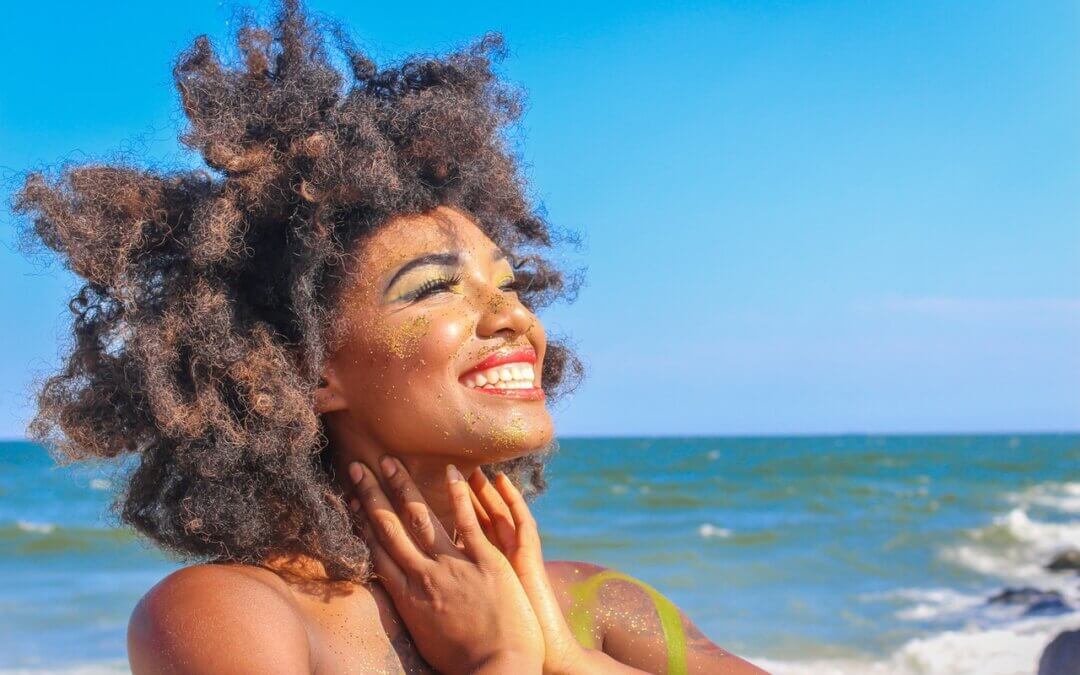
by Mia Barnes
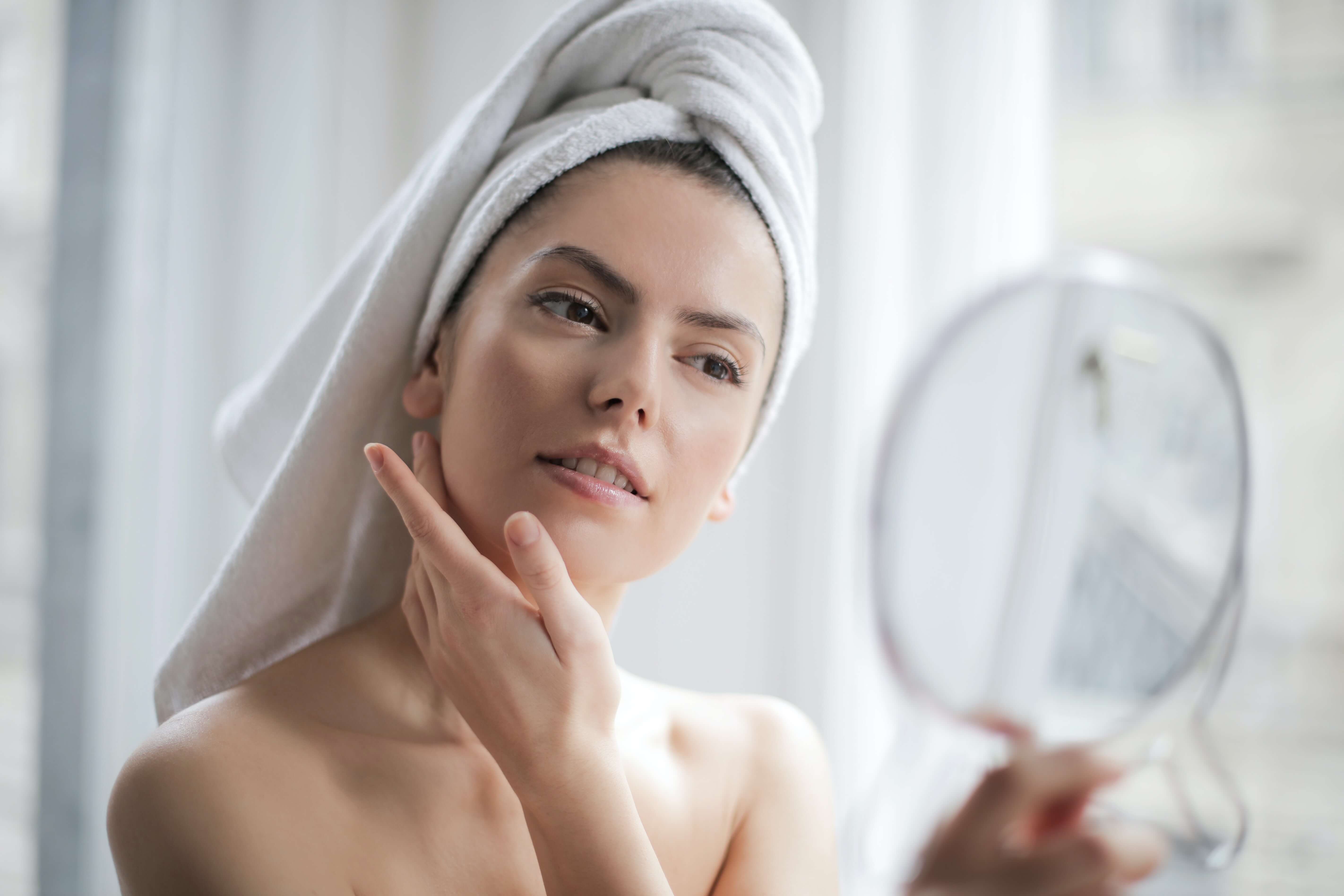
You may remember talking about the various layers of the skin in biology class, but how does that apply to taking care of your own face in your beauty routine? Taking care of your skin means going deeper, and taking care of all the layers beneath. Depending upon which source you consult, most people consider the human skin to have between seven and eight layers. Although certain skincare practices Are purely surface level, there is so much more that you can do to take care of the whole of your skin. Here are a few things that you can do to make sure that you’re taking care of the different layers of your skin.
Use Chemical Exfoliators
Although chemical exfoliators might sound a bit harsher than physical exfoliators, the truth is actually the opposite. Most products can only penetrate the uppermost layers of the epidermis, as the skin’s natural barriers are designed to keep harsh and abrasive particles out. When you use scrubs and washes with beads, you can cause breakage and damage that ultimately harms the skin. Instead, go for a chemical exfoliator.
Always Moisturize
Speaking of protecting your skin’s natural barriers, moisturizing is always important, no matter what skin type you have. By using a moisturizer at the end of your skincare routine, you can offer a bit of extra protection by locking in moisture and preventing transepidermal water loss from taking place.
Avoid Alcohol In Your Skincare Products
Although it can sometimes feel satisfying to use products that contain alcohol — think of that clean, refreshing feeling that many toners and witch hazel products can leave on your skin — alcohol can actually throw your skin’s layers completely out of balance. Specifically, alcohol can strip your skin of the natural oils that it needs for protection and hydration, drying out the epidermis and causing damage to your skin over time with repeated use.
Try a Deep Mask
Just because you don’t want to cause deep damage doesn’t mean you can never go deep with your skincare treatments. In fact, there are plenty of times that going a little beneath the surface is important. In the case of things like blackheads, using masks and products that are intended to go deeper into the epidermis can help fish out excess debris and sebum that you can’t get from traditional products. Ingredients like clay and activated charcoal can be fantastic for this.
Head to a Professional
At the end of the day, the only person that is specifically qualified to go deeper into your skin on a consistent and regular basis is a skincare professional. Whether you schedule regular visits to the dermatologist to plan out your skincare regimen or you book a bi-monthly facial with your favorite aesthetician, putting your face in the hands of a professional is a great way to cover all your bases.
Taking Care of Your Skin, Top to Bottom
There are so many ways that you can take care of your skin from the top to the bottom. By avoiding harsh products and chemicals, moisturizing regularly and going to a professional when you can, you can make sure that your skin is always at its best, even in the places you can’t see.
Photo by Andrea Piacquadio from Pexels
Cover Photo by nappy from Pexels







by Mia Barnes
 Skin care has become so much more popular in recent years, and for good reason! Skin care is about so much more than looking beautiful — although it can certainly do that too. Caring for your skin is about caring for the inside of your body as well as the outside, just like any other health and wellness routine.
Skin care has become so much more popular in recent years, and for good reason! Skin care is about so much more than looking beautiful — although it can certainly do that too. Caring for your skin is about caring for the inside of your body as well as the outside, just like any other health and wellness routine.
There are so many ways that you can take care of your skin, and just the same, there are plenty of bad habits that might be impacting your skin. While of course everybody is different, there are a few universal skin care tips that are worth trying out no matter who you are. If you’re curious about the kinds of habits that can affect your skin, here are just a few of them.
Not Drinking Enough Water
Staying hydrated is one of the most important ways to keep your skin healthy, and therefore not drinking enough water can have its consequences on your skin. Whether it comes as a result of dehydration or drinking sugary sodas and coffees, lacking water can contribute to dryness and breakouts.
Eating Processed Food
Similar to sugary drinks, processed foods filled with artificial sweeteners, processed sugar, white flours and complex fats can cause breakouts, excess sebum and oil that you’re likely in the market to avoid. Of course, everything is okay in moderation, but it’s best to keep processed food to a minimum.
Using Physical Exfoliators
This is a bad habit that can often be in good faith — while using scrubs, brushes and loofahs can sometimes feel good in the moment, it can actually cause abrasion and break down the moisture barrier that your skin needs protection.
Extra Hot Showers
Super hot showers, much like physical exfoliators, can feel good in the moment, but they are often much too harsh, especially if you have sensitive skin. Instead, try to take warm showers so you can relax and take care of your face.
Going to Sleep In Your Makeup
It can be tempting to crash at the end of the day without doing your evening skin care routine — especially if you’re extra tired. But going to sleep in your makeup is actually a bad habit that can cause breakouts, irritation and excess sebum and oil. Try to at least cleanse with micellar water before you hit the hay.
Drinking Alcohol
Alcohol is another habit that can affect your skin. Specifically, if you struggle with rosacea, hyperpigmentation, redness or dryness, drinking regularly can often trigger those skin issues. Try cutting back on alcohol or even going completely sober to see how your skin reacts.
Changing Products too Frequently
It can be fun to change up your skin care routine whenever you catch wind of a fun new product you’re itching to try — but let’s not forget that skin care routines are important for a reason. When you find products that work for your skin, you should keep them in your rotation.
Smoking Cigarettes
Smoking cigarettes is bad for your health, but it’s also bad for your complexion. If you smoke cigarettes, try to cut back or quit, as they can cause premature aging, spots, hyperpigmentation and breakouts.
Skipping the SPF
Speaking of premature aging and spots, skipping out on sunscreen is one of the most common bad skin habits. Make sure that even during the colder months you keep applying an SPF of at least 30 before you leave the house in the morning — you’ll thank yourself in a few years.
Popping and Picking
Although pimple popping videos can sometimes be satisfying to watch and even satisfying to reenact, it can actually be a very bad idea to pop and pick when you have breakouts. Not only can it get bacteria underneath the surface of your skin, but it can also lead to scarring and spots.
Bad Skin Habits to Kick
Taking care of your skin is truly about going from the inside out. From the food that you eat to the way that you hydrate yourself, and even the temperature of your showers, there are so many places that you can improve your habits in order to take better care of your skin. Do you have a tendency towards any of these habits?
Cover photo by Shiny Diamond from Pexels
Interior photo by Maria Orlova from Pexels









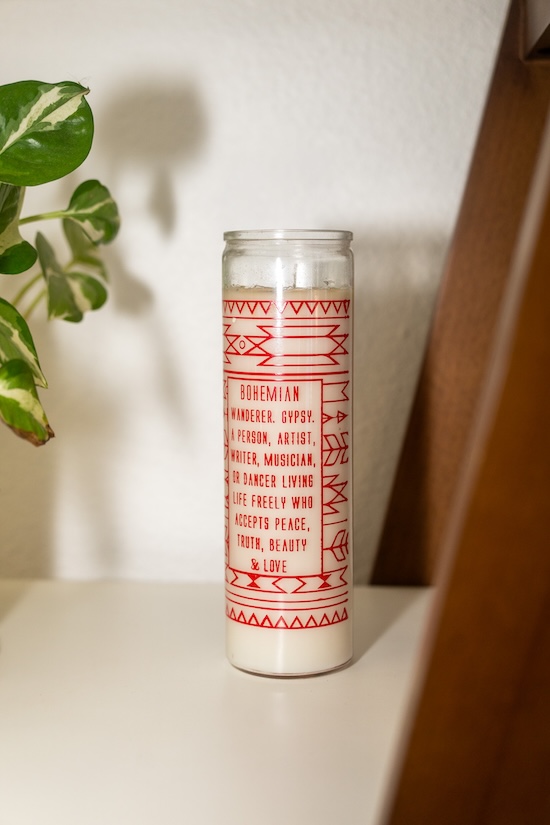

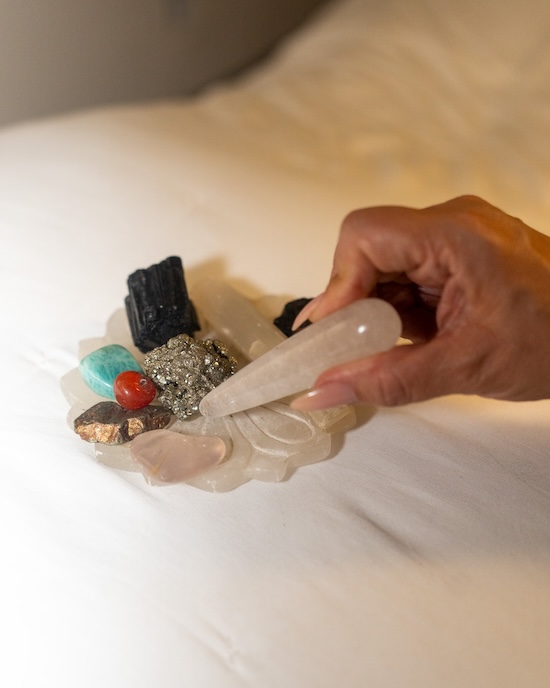
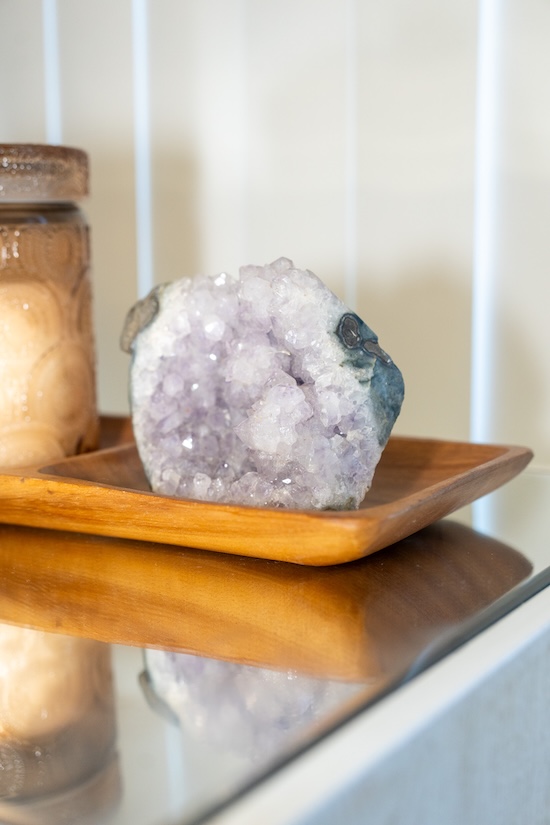



 Combining her studies in Ayurveda, Aromatherapy, and Organic Skincare Formulation, Alix Clo brings you an evolving collection of highly therapeutic, age-inclusive, natural skincare products, that not only work, but also feel amazing.
Combining her studies in Ayurveda, Aromatherapy, and Organic Skincare Formulation, Alix Clo brings you an evolving collection of highly therapeutic, age-inclusive, natural skincare products, that not only work, but also feel amazing. I further received a powerful little jar of Wonder. This serum delivers deep hydration and improves elasticity.
I further received a powerful little jar of Wonder. This serum delivers deep hydration and improves elasticity.







 Fragrances are in almost everything, including your skincare. Even if you opt for unscented items, that doesn’t necessarily mean they’re without scents. Does that mean you need to opt out of nice-smelling products? The answer may vary depending on how sensitive your skin is and how interested you are in finding natural scents over synthetic ones.
Fragrances are in almost everything, including your skincare. Even if you opt for unscented items, that doesn’t necessarily mean they’re without scents. Does that mean you need to opt out of nice-smelling products? The answer may vary depending on how sensitive your skin is and how interested you are in finding natural scents over synthetic ones.
 Every organ needs continual blood flow to function. You might not think of your skin as an organ, but it is. If your veins struggle to transport blood, you could experience symptoms like dry skin, a paler countenance, or rashes. Use these tips to improve your blood circulation and enjoy healthy skin that glows.
Every organ needs continual blood flow to function. You might not think of your skin as an organ, but it is. If your veins struggle to transport blood, you could experience symptoms like dry skin, a paler countenance, or rashes. Use these tips to improve your blood circulation and enjoy healthy skin that glows.
 Whether you have a dry skin type frequently or it’s a new development as the seasons change, keeping your skin moisturized can save you a lot of irritation while improving confidence in your appearance. Fortunately, there are dozens of remedies to
Whether you have a dry skin type frequently or it’s a new development as the seasons change, keeping your skin moisturized can save you a lot of irritation while improving confidence in your appearance. Fortunately, there are dozens of remedies to 






